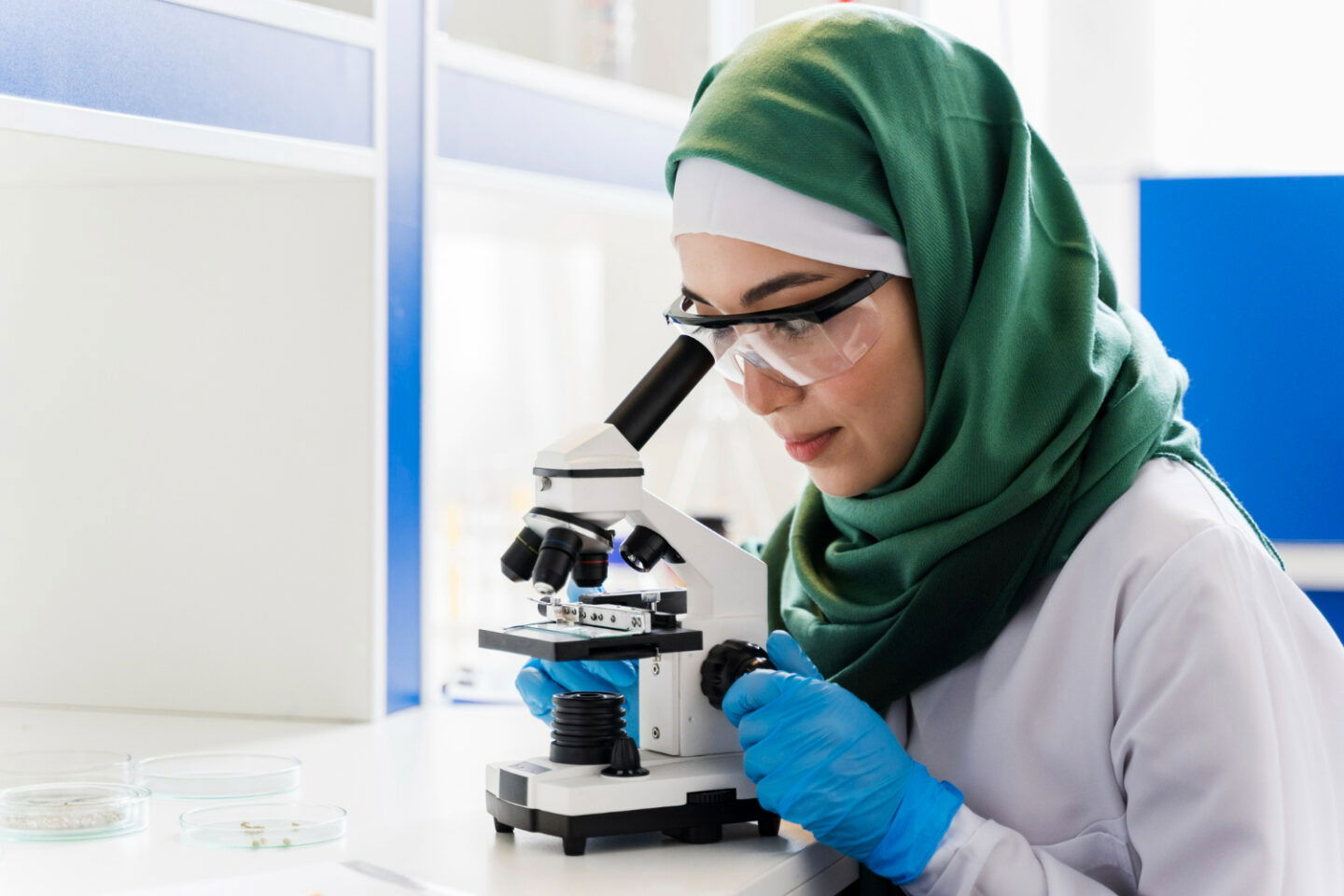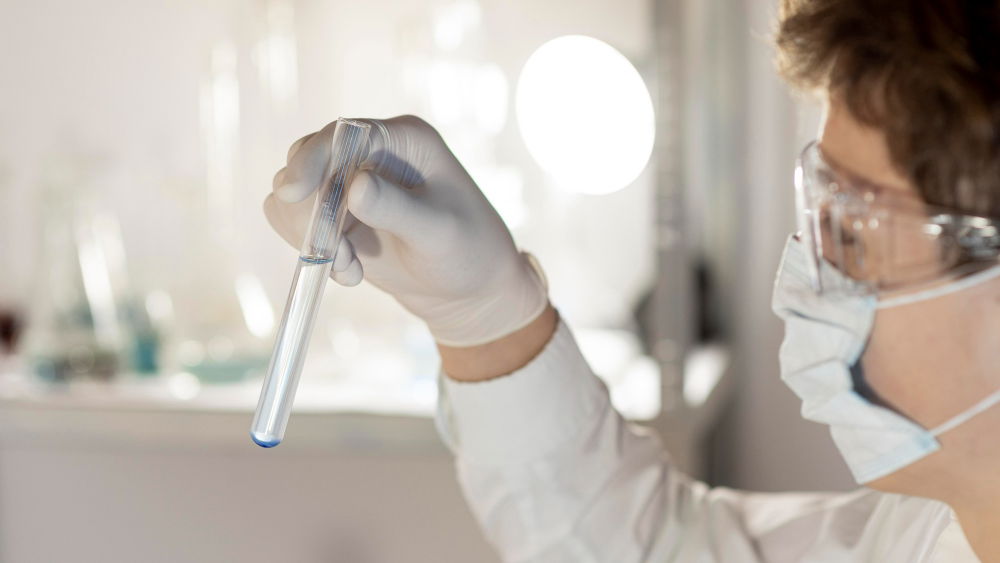30+ Biology IA Topics Ideas: New Topics for 2024

Exams aren’t the only thing that matters in IB Biology. One-fifth of your final grade comes from the Internal Assessment (IA), and you’ll need those 24 marks it awards. This means that everything, from choosing a Biology IA topic to conveying your experiment and describing it in a report, needs to be carefully thought about.
Unfortunately, many students stumble on the very first step – finding the right topic. We can clearly see why – it must be within the IB Biology syllabus but still stand out, not too broad and not too narrow, piquing your interest but a manageable quantity of work.
At TutorsPlus, we would like to help. That’s why we asked our IB Biology tutors to put thier heads together and suggest 30+ exciting Biology IA topic ideas.
What is a Biology Internal Assessment?
Internal Assessment is a mandatory scientific assignment at the end of year two of your IB Diploma Programme. It is also your chance to explore a Biology topic that interests you.
To succeed, you need to design a scientific investigation, collect data, analyse your findings, and write a report about them. Thanks to IA, you can showcase your research and thinking skills, as well as prove that you actually understand Biology and not just memorise facts for exams.
IB Biology Internal Assessments consist of these major parts:
- Research Question. You are free to choose any question related to Biology as long as it is possible to conduct an experiment with available resources. It doesn’t have to be a topic covered in the syllabus but it should be on the same level of difficulty. Examiners tend to give more points for IB Biology topics you have a personal interest in, as they often see your enthusiasm shine through. So make sure you state clearly why you chose this topic and what effect it has on your life or society in general.
- Investigation. It is possible to gather information for your Biology IA in many ways. For example, you can design an experiment in a lab, conduct fieldwork, analyse data from a database, or even use a simulation. The most important is to collect and analyse quantitative data (numbers), supported by qualitative observations (descriptions) if relevant.
- Report. Once you’ve completed your investigation, you need to write a report summarising your findings. This report has a maximum word count of 3,000 words. This means you have to be clear, concise, and well-organised.
Biology IA grading system and criteria
Internal Assessment constitutes 20% of your final Biology grade whether you’re at SL or HL. Overall, it can bring 24 marks, which are evenly distributed across 4 marking criteria.
Research Design
This criterion focuses on how you set up your investigation. The examiners want to see a clear research question that has a specific context (i.e. scientific background). They also need to understand the methodology you used to answer that question.
In particular, you should clearly specify how you selected and measured your variables, what data you collected, and how you ensured the safety of your experiment. If there are any ethical or environmental considerations, you need to address them.
Data Analysis
The next criterion assesses how well you presented your findings. Your report must contain clear and accurate graphs, tables, and other relevant ways to organise your data. All of them should have appropriate labels, as well as feature annotations, units, decimal places, and significant figures.

Along with that, you shouldn’t forget to provide explanations of how you processed your data. Examiners also want to see that you considered any uncertainties or errors in your measurements.
Conclusion
To earn the 6 marks with this criterion, you need to clearly answer your research question. Your conclusion should explain what your data means based on your analysis and taking into account scientific knowledge that relates to your topic.
Besides, you need to show a comparison of your findings to this scientific context. Whenever you cite any sources in your report, they must be properly referenced.
Evaluation
It is important to be able to reflect on your investigation. In other words, your report must provide evidence of evaluation of your methodology.
In particular, you need to specify the strengths and weaknesses of your approach. Were there any limitations in how you collected or analysed your data? Could you have done anything differently? Here is also where you propose ways to improve your investigation if you could do it again.
30+ IB Biology IA Topic Ideas
An ideal IB Biology IA topic is one that sparks your curiosity and fuels your passion for science. When you’re genuinely interested in your topic, you’ll be more motivated to design a creative investigation and conduct a thorough experiment.
But you need to be careful when choosing your topics. You can find a lot of IA topic ideas on the Internet. However, you shouldn’t cut corners and simply copy them. That’s because examiners want to see investigations that show a unique perspective. This means your topic should be original.
Having said that, you can still count on us for IA biology ideas. The following list of 30+ possible topics is designed to inspire you, not replace your creativity. Use them to brainstorm your own unique and exciting IB Biology IA topic.
Ecology and Environment
- The impact of climate change on bird migration.
With this IA topic, you can investigate how climate changes affect bird migration patterns. Along with this, you can predict potential implications for ecosystems worldwide.
- Analysing the effects of water pollution on plant growth.
This topic can explore the effects of different pollutants on plant growth and health. Your conclusions are supposed to raise awareness about the importance of clean water.
- Assessing the health of forest ecosystems in relation to air pollution.
Here, you can examine the link between air pollution and forest health. The results of the investigation may highlight the need for cleaner air.
- Evaluating the effectiveness of methods for reclaiming polluted lands.
Such a topic requires you to explore various techniques for restoring contaminated areas. You also need to assess their potential to revitalise once-degraded landscapes.
- Investigating the anthropogenic influences on biodiversity in coastal ecosystems.
Specify the effects of human activities on the diversity of coastal habitats. It is also worth providing insights into the conservation efforts needed to preserve these fragile environments.
Genetics and Evolution
- Studying the effects of mutations on the development of certain diseases.
Explore how mutations alter DNA’s code and result in the development of certain diseases. Understanding these alterations can help create better treatments and preventative measures.
- Comparative analysis of genetic diversity within a species across different geographic regions.
Such a topic is a cross-regional exploration of genetic variation within a species. Your investigation can track the connection between geographic distribution and evolutionary processes.
- Assessing the role of natural selection in the evolution of a particular organism.
Your work may examine how natural selection shapes the adaptation and evolutionary trajectory of a specific organism. It can also offer insights into the mechanisms that promote biological diversity.
- Exploring the impact of genetically modified organisms on agriculture and ecology.
This topic encourages you to investigate how GMOs influence crop yields and pest resistance, as well as their potential ecological implications. Your findings can support the discussion about this powerful technology.
- Investigating the genetic mechanisms underlying specific behavioural traits.
By exploring this connection, you are able to gain insights into the interplay between genes and the environment as well as how they shape our behaviour.
Physiology
- Evaluating the influence of different diets on metabolism.
Here, you have a chance to explore how various dietary patterns can influence metabolic processes. Your IA can track the relationship between nutrition and overall well-being.
- Examining the effects of physical activity on cognitive functions.
Investigate the impact of exercises on our cognitive abilities. You may also highlight the benefits of an active lifestyle on mental sharpness and overall brain health.
- Analysing the impact of stress on the immune system.
This Biology IA topic delves into the interplay between psychological stress and the body’s defence mechanisms. It is also necessary to specify how our emotional well-being can influence the ability to prevent illness and disease.
- Investigating the mechanisms of organismal adaptation to extreme environmental conditions.
This IB Biology Internal assessment should pinpoint the strategies employed by living organisms to survive in harsh environments.
- Assessing the influence of sleep on memory and cognitive processes.
With this IA, you can explore how sleep deprivation impacts learning, concentration, and overall brain function.
Biotechnology
- Evaluating the effectiveness of DNA encryption in biotechnology.
This investigation could examine how scientists safeguard sensitive genetic information as well as explore the ethical implications of DNA encryption.
- Studying the potential of gene therapy in treating genetic diseases.
With this IA, you can review the latest advancements in gene therapy. It is also necessary to explore the challenges and future prospects of gene therapy including corrective genetic materials.
- Analysing the impact of genetically modified crops on agriculture and the environment.
Examine the effects of genetically engineered crops on agricultural practices and the surrounding ecosystems. Your IA should contribute to the ongoing debate on food security and environmental sustainability.
- Investigating the ethical considerations of animal cloning.
This topic should focus on the potential benefits of this technology in medicine and conservation. At the same time, you need to address the ethical concerns surrounding animal welfare and unnatural reproduction.
- Assessing the potential use of stem cells in medical applications.
This IA is your chance to evaluate the potential of stem cells in revolutionising medical treatments. You may also explore such ways to improve healthcare as regenerative therapies, personalised medicine, and others.
Microbiology
- Studying the effects of antibiotics on the human microbiome.
This topic encourages you to explore how antibiotic use disrupts the microbiome balance in our bodies. You should also specify their potential consequences on human health.
- Analysing the impact of bacteriophages on bacterial populations in soil.
Here, you need to track the relationships between bacteriophages and bacterial populations in the soil. Along with this, it is important to explore the vital role of these viruses in regulating microbial communities and maintaining ecological balance.
- Evaluating the effectiveness of various sterilisation methods in medical facilities.
Such an IA should assess the efficiency of different sterilisation techniques to ensure safety and hygiene standards that protect patients and personnel from potential infections.
- Investigating the influence of prebiotics on the composition and function of the gut microbiome.
This investigation must focus on how prebiotics influence the composition and function of the gut microbiome. In particular, you need to discuss how it impacts digestion, immunity, and overall well-being. You should also offer ways to optimise gut health.
- Analysing the impact of microbial communities on plant health.
This IB Biology IA topic requires you to analyse the symbiotic relationship between plants and the microorganisms that coexist with them. Explain the vital role of these microbial communities on plant growth, nutrient uptake, and disease resistance.
Book free trial with our certified teachers today
100 % of tutors are certified teachers and examiners
Ethology and Animal Behaviour
- Studying the influence of social structures on the behaviour of social animals.
With this IA topic, you need to study the dynamics of social animal groups. In particular, it requires you to examine how various factors (such as size, hierarchy, and communication patterns) shape their behaviours and decision-making processes.
- Analysing the effects of the environment on behavioural patterns in birds.
Analyse how environmental factors such as light, temperature, and food availability influence behavioural patterns in different bird species. Discuss how these patterns contribute to adaptability and resilience.
- Assessing the impact of urban stressors on mammalian behaviour.
This Internal Assessment should explore the potential consequences of urbanisation on the behaviour and well-being of mammals. Reveal the challenges faced by these animals in adapting to rapidly changing environments.
- Investigating the genetic factors influencing animal behaviour.
Investigate the genetic factors influencing specific behaviours in animals, such as aggression, mating rituals, or parental care.
- Analysing the impact of food competition on fish behaviour in closed-water systems.
Here, you should explore the dynamics of resource competition among fish in controlled aquatic environments and specify the strategies they adopt to secure essential resources.
Biochemistry
- Evaluating the influence of different factors on the rate of enzymatic reactions.
Investigate how temperature, pH, and substrate concentration impact enzyme efficiency, explain cellular processes under various conditions, and suggest how these biological catalysts can be optimised for diverse applications.
- Studying the effects of diet on blood cholesterol levels.
With this Biology IA topic, you can study how different dietary components including saturated fat, fibre, and cholesterol intake affect cholesterol levels. You can also provide dietary recommendations for cardiovascular health.
- Analysing the impact of various antioxidants on the stability of cell membranes.
Assess the role of antioxidants in preserving the integrity of cell membranes. This investigation can lead to insights into strategies for preventing cellular damage.
- Assessing the influence of temperature on the rate of photosynthesis.
Determine how temperature fluctuations influence the efficiency of photosynthesis. Make conclusions on the conditions required for optimal plant growth and productivity.
- Investigating the mechanisms of organismal adaptation to changes in pH in the environment.
This IA could take a closer look at the strategies the living organisms use to cope with fluctuations in environmental acidity. Make conclusions on the physiological and genetic mechanisms that facilitate adaptation and survival.
Biomedicine
- Investigating the influence of genetic factors on cancer development.
This independent investigation can study the influence of specific genes and mutations on cancer risk. Explain the mechanisms that contribute to the growth and progression of this disease.
- Analysing the mechanisms of infectious disease development.
With such a Biology IA, your task is to explain how pathogens including bacteria or viruses invade the body, replicate, and cause illness. You also need to provide strategies for prevention and treatment.
- Exploring the effects of viruses on host genetic material.
This involves investigating the interactions between viruses and the genetic material of their hosts. You need to highlight the impact these pathogens can have on cellular function and disease progression.
- Analysing the mechanisms underlying allergic reactions.
Study the immunological processes that trigger allergic responses. Explain how the body’s defense mechanisms work as well as describe potential strategies for allergy prevention and treatment.
How Can I Prepare for the IA?
You have chosen Biology as part of your IB Diploma Programme for a reason. Perhaps, you wanted to know more about the world around you or your own body. But are there specific areas of Biology that you’re most interested in?
Maybe you’re fascinated by cell structures, mechanisms of adaptation to the surroundings, or you want to know how diseases appear? Use your curiosity as a starting point for your Internal Assessment.
Once you have a general area, it’s time to turn it into a specific research question. The most important is to make your question narrow enough so that you can investigate it within a limited time.

For example, instead of asking something broad like “How does food affect health?”, you can narrow it down to “How does eating saturated fats compared to unsaturated fats affect blood cholesterol levels?”
However, being unique and specific are not the only requirements for your research question. It also needs to be doable. This means you need to consider the resources you have on hand.
Can you do your experiment with the equipment available at school or at home? Are there any ethical considerations for your topic? If you have any doubts, you should discuss them with your teacher to prevent any unexpected challenges down the line.
Besides choosing an appropriate research topic, your IA will consist of the following steps:
- Selecting dependent, independent, and control variables;
- preparing the necessary equipment and materials;
- creating a clear and detailed methodology;
- conveying your experiment and meticulously writing down your results;
- analysing and evaluating your findings;
- creating a report of up to 3000 words.
We have a guide on how to write your IB Biology Internal Assessment – make sure to use it to aim to secure all 24 points.
Conclusions
Your IB Biology Internal Assessment is both exciting and challenging. It provides an excellent opportunity to experience what it’s like to be a real scientist. But it also means that you need to be just as meticulous as one, from choosing your topic to recording your findings. And here is where many students get stuck.
If you, too, find yourself in hot water, don’t be afraid to ask for help. TutorsPlus is a team of experienced Biology tutors, certified teachers and IB examiners who are happy to assist you in your Internal Assessment journey.
We understand the importance of the IA in your overall IB Biology score and want to help you achieve your best. With our support, you will be able to write a high-quality Internal Assessment that showcases your scientific understanding and research skills.
You can contact us at 022 731 8148 or . We are excited to help you get 24 marks for your IA.
By Sara Lloyd
Sara has been an education consultant for TutorsPlus for 15 years, and is an expert on international IB education. She is also a parent of two lively children.















